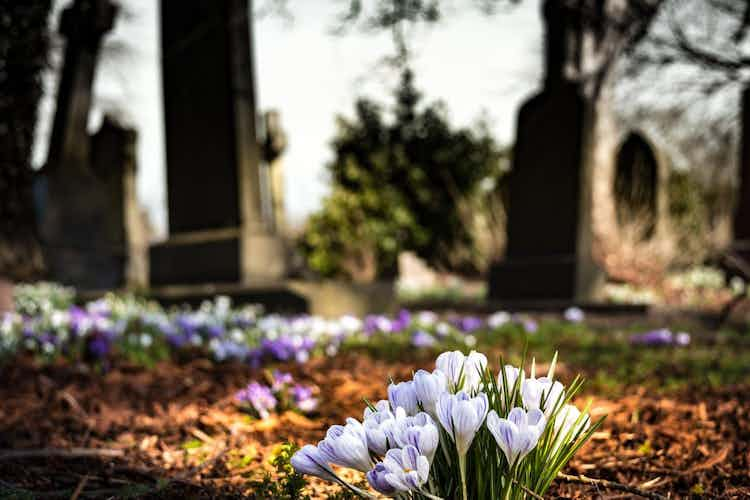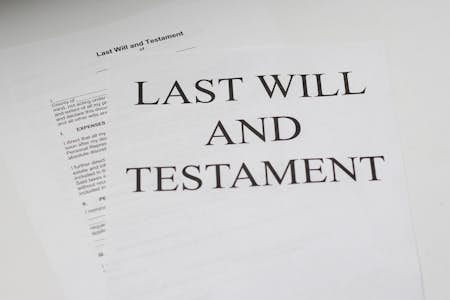The Bereavement Support Payment (BSP) scheme replaced Widow's Pension and Widowed Parent's Allowance in 2017. The scheme aims to provide assistance to ensure your partner's death doesn't cause financial hardship.
Maximise your retirement fund with our panel of pension providers. Click on your chosen provider to get started!
If eligible under the current scheme, you could receive a lump sum and regular payments for up to 18 months.
To ensure you know what to do if your partner has died, let’s look at:
- Who can claim Bereavement Support payments?
- How much are the Bereavement Support payments, and are they taxed?
- When should you make a Bereavement Support claim?
- How do you claim the Bereavement Support Payment, and can you get backdated payments?
- What if you reach the state pension age or die while receiving Bereavement Support payments?
- What happens to your spouse's or civil partner’s pensions when they die?
- What other financial help is available if your partner dies?
Who can claim Bereavement Support payments?
You can apply for Bereavement Support Payment when your partner dies. The payments are available to all widowed partners, even unmarried cohabiting couples.
To be eligible for these payments, you need to meet the following eligibility criteria:
- Be under the official national retirement age, which, as of December 2023, is 66 years for both men and women.
- Reside in the UK or a nation offering bereavement benefits, including European Economic Area (EEA) countries, Switzerland and Gibraltar. You can find the complete list of eligible counties for BSP claims here.
- Legally married, in a civil partnership, or cohabiting as if married to your partner. We investigated the meaning of cohabitation but found no legal definition; however, you can establish your status with a partner by signing a cohabitation contract.
Your deceased partner must have paid at least 25 weeks of National Insurance contributions in one tax year since 6 April 1975. You may also receive the benefit if your spouse or civil partner's death was due to an accident or illness at work.
How much are the Bereavement Support payments?
BSP gives you one payment on death, followed by monthly payments for 18 months. The original widow's pension was available until you turned 65, remarried or retired.
There are two rates for the Bereavement Support payments:
- Lower rate - First payment of £2,500 followed by £100 monthly.
- Higher rate - First payment of £3,500 followed by £350 monthly.
You are paid the higher rate only if you have children to look after and you’re entitled to Child Benefit. You could also receive it if you were pregnant when your partner died, similar to the Widowed Parent's Allowance.
Are these payments taxed?
No, you don’t have to declare or pay tax on Bereavement Support payments.
When should you make a Bereavement Support claim?
You can claim Bereavement Support payments straight away after your partner's death.
The type of financial assistance you receive depends on the time you apply after your partner's death:
- If you apply within the first three months, you can get a one-time payment and all 18 monthly payments.
- If it's been three to 12 months since their death, you may be eligible for a one-time payment and partial monthly payments.
- If it's between 12 and 21 months, you can still receive some monthly payments, but the one-time payment is not available.
If you apply after 21 or more months since your partner's death, you will generally not be eligible for any financial assistance.
How can you claim the Bereavement Support Payment?
You can apply for BSP by calling the Bereavement Service helpline on 0800 151 2012. The phone line is open from Monday to Friday, 8 am to 6 pm.
Alternatively, you can apply by filling out a form. The form is available to download here. You can also get the form from your local Jobcentre Plus.
Can I get backdated payments?
Yes, you can get backdated BSP payments if you meet the following criteria:
- Your partner died after 5 April 2017 but before 9 February 2023.
- You were living together as if married when your partner died.
- You were under the national retirement age on 30 August 2018.
- You were pregnant or had a child living with you.
In 2018, the Supreme Court ruled against excluding unmarried partners with dependent children. The law changed in 2023, allowing retroactive claims until August 30, 2018. This means you must apply by 9 February 2024 to get the full amount of BSP backdated payments. You can still apply until 8 November 2024, but you might receive fewer monthly payments.
What if you reach state pension age or die while receiving Bereavement Support payments?
BSP eligibility and payments stop when you reach State Pension age, regardless of whether you choose to delay receiving your State Pension.
If you’re receiving the bereavement allowance when you die, the payments will stop. You may be able to transfer the bereavement allowance to your next of kin by putting it in your will, so it’s worth checking with a financial advisor or the Bereavement Service helpline if this is something you wish to happen after you die.
What happens to your spouse or civil partner’s pensions when they die?
When a spouse or civil partner dies, what happens to their pensions is determined by the rules and conditions of the state or private pension plan they were a part of.
State pensions
You could claim extra payments from your husband, wife or civil partner’s state pension after their death.
- If you reached state pension age before 6 April 2016: You’ll get additional state pension payments based on your partner's national insurance contributions. You won't get the top-up if you remarry or form a new civil partnership.
- If you reached state pension age on or after 6 April 2016: You’ll receive the ‘new state pension’, and you can get extra payment on top of the full amount of your pension. You can get half of the protected payment they would have received or received. A protected payment is extra money you get if your initial State Pension is higher than the full new State Pension, ensuring you receive a higher amount. You won’t inherit any extra payments if they received the flat rate.
You can read more about the national pension system from our article here.
Private and workplace pensions
Your partner's private pensions may also give you extra payment after their death, usually called a death benefit. You should check with the workplace pension scheme or private pensions they may have taken if they were self-employed.
You may have to pay tax on these payments if the pension provider doesn't pay it for you.
What other financial help is available if your partner dies?
You may be eligible to claim other benefits if you're struggling financially in the event of your spouse or civil partner's death, including:
- Funeral Expenses Payment.
- The Armed Forces Compensation Scheme (previously War Widow's Pension).
- Tax Credit.
- Child Benefit.
If you are on a lower income, it may also mean you could claim other benefits. The UK government considers households low income if their annual income is less than 60% of the median UK household income. In 2022, a couple with an income of £15,600 after housing costs was considered low income.
Using a benefits calculator can help you determine what help is available.
Image Credit: Pixabay at Pexels







